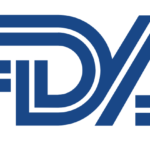
On Friday, the U.S. Food and Drug Administration issued a Drug Safety Communication regarding known side effects of hydroxychloroquine and chloroquine, including serious and potentially life-threatening heart rhythm problems, that have been reported with their use for the treatment or prevention of COVID-19, for which they are not approved by the FDA.
These risks, which are in the drug labels for their approved uses, may be mitigated when health care professionals closely screen and supervise these patients such as in a hospital setting or a clinical trial, as indicated in the Emergency Use Authorization (EUA) for these drugs to treat COVID-19.
The FDA has issued an EUA to allow hydroxychloroquine and chloroquine products donated to the Strategic National Stockpile (SNS) to be distributed and used in limited circumstances, such as for certain hospitalized patients with COVID-19. These drugs are able to be distributed from the SNS to states for doctors to prescribe to adolescent and adult patients hospitalized with COVID-19, as appropriate, when a clinical trial is not available or feasible. The EUA requires that fact sheets with important information about using these drugs in treating COVID-19, including the known risks and drug interactions, as well as appropriate screening and monitoring, be made available to health care providers and patients.
Hydroxychloroquine and chloroquine are FDA-approved to treat or prevent malaria. Hydroxychloroquine sulfate is also FDA-approved to treat lupus and rheumatoid arthritis. These medicines have not been proven safe or effective for treating COVID-19. However, clinical trials are underway and additional trials are being planned to determine if these drugs can benefit patients with COVID-19. These trials are also examining whether the drugs can prevent COVID-19 among health care workers, first responders or people who have been in close contact with someone with COVID-19.
For the full FDA press release, click here.